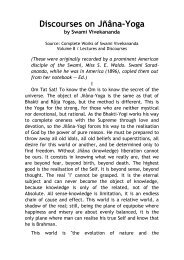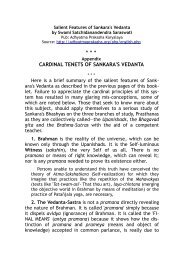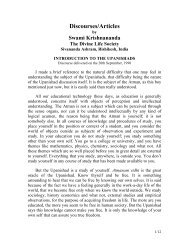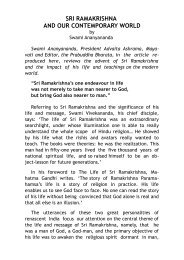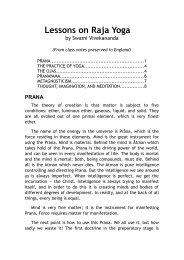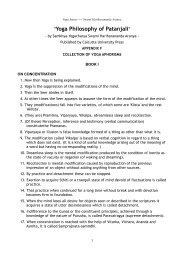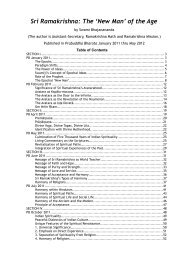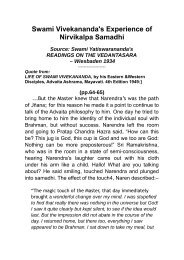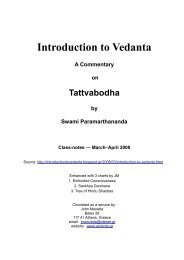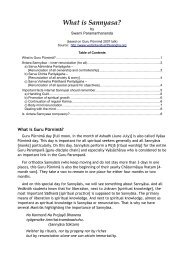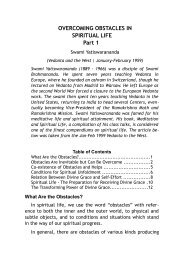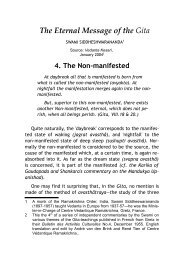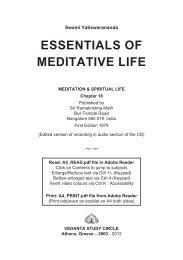Concentration & Meditation - Vedanta
Concentration & Meditation - Vedanta
Concentration & Meditation - Vedanta
You also want an ePaper? Increase the reach of your titles
YUMPU automatically turns print PDFs into web optimized ePapers that Google loves.
38 Swami Bhajananandalaw of gravitation. So all progress and power are already in everyman, perfection is man’s nature, only it is barred in and preventedfrom taking its proper course. If anyone can take the baroff, in rushes nature.” 26 Prakriti does all work. All the changes goingon in the universe are the working of prakriti. Individual effortis needed only to remove the obstacles to the working of prakriti.Where does this individual effort come from? It cannot be fromprakriti itself, as the Samkhya philosophers hold, for then it willnot explain the part played by the farmer. Nor can it be from thetrue Self or Atman which is of the nature of pure consciousness.The volitional impulse must therefore come from the empiricalself, which is the reflection of the true Self on the buddhi. It is theagent-self (karta) whose chief characteristic is will. Consciousnessand will are the higher and lower aspects of the self. SriRamanuja and other dualist thinkers do not accept the distinctionbetween true (paramarthika) and empirical (vyavaharika) selves.According to them consciousness and will are the static and dynamicaspects respectively of the same self. The self as theknower is consciousness, the self as the doer is will. For our purposeit is enough to know that will is a product of consciousness,as pointed out by Swami Vivekananda. 27 The self is endowedwith both consciousness and power — power not to create but toremove obstacles, for prakriti does all creative work. It is significantthat in ancient Yoga texts the Purusa is referred to asciti-sakti (consciousness-power), and Vyasa uses this termthroughout his commentary on Patanjali’s aphorisms.The mind can be controlled not by the mind but by somethinghigher, namely the self. The self exercises this control throughthe will. But if the will is itself bound, the mind cannot be controlled.The more free the will is, the greater the mind-control.Only the yogis have free will. Says Swamiji, “Remember alwaysthat only the free have free will: all the rest are in bondage… Willas will is bound.” 28Pure consciousness is ever free, bondage applies only to the27. Swamiji has thereby refuted the view of Schopenhauer and the Voluntariststhat the will is superior to consciousness and that Reality is nothing but will. SeeComplete Works (1977), vol. 8, pp. 362-63.28. Complete Works, vol. 7, p. 99.



